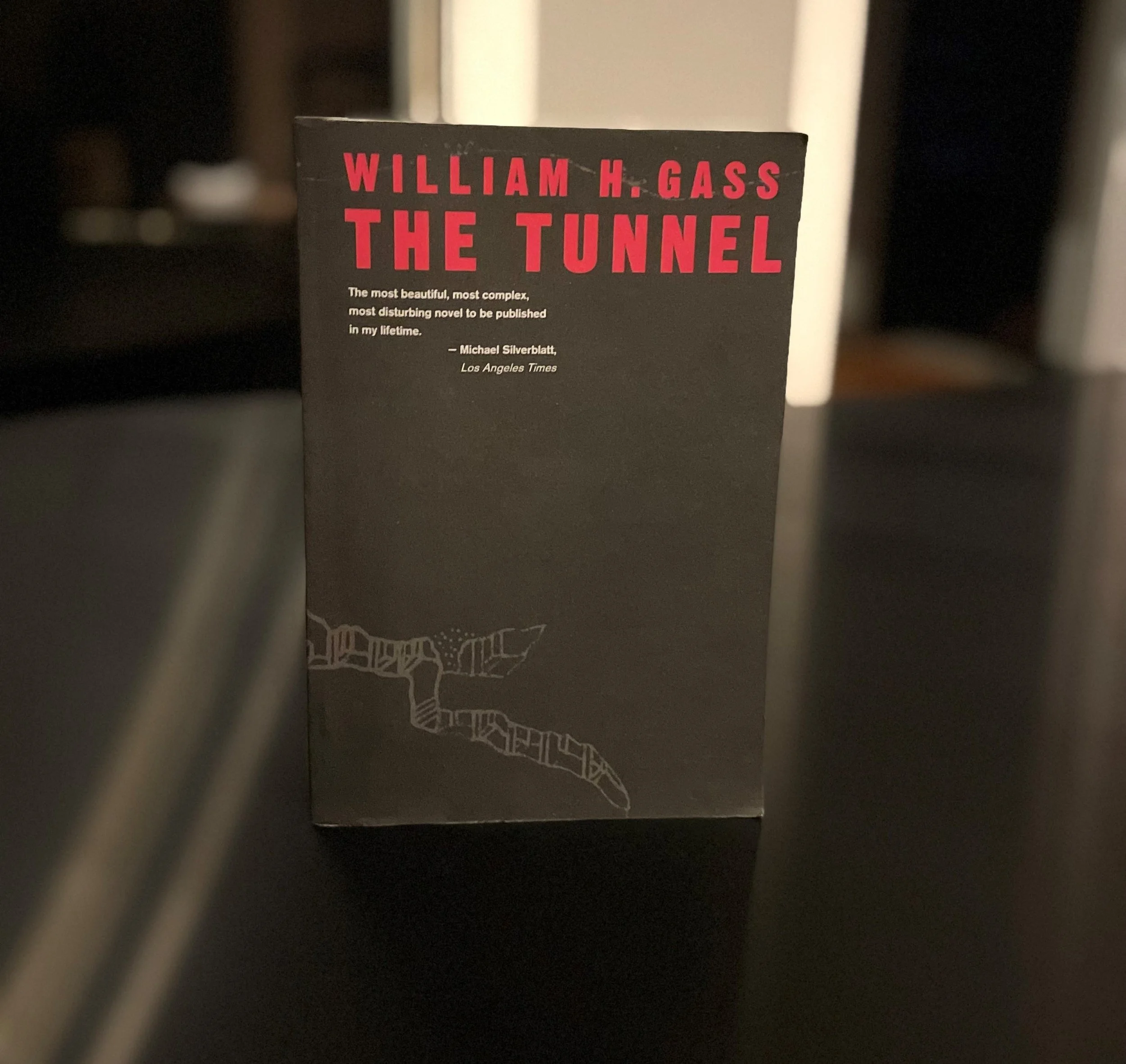The cover of my Dalkey edition aptly states -
The most beautiful, most complex, most disturbing novel to be published in my lifetime.
- Michael Silverblatt
My reflections after having just dug myself out of The Tunnel.
I arrived at this book almost 30 years after its original publication, famously said to have taken Gass 30 years to write it(Gass says in an interview it actually took him 26 years).
William Kohler, a history professor sits down to write an introduction to his magnum opus Guilt and innocence in Hitler's Germany. He decides to dig a tunnel from his basement, both literal and metaphorical and takes us through his childhood, family, work life and his affairs with his female students.
This is the plot. But who needs a plot when you come face to face with Gass' breathtaking prose, a master of the language who so elegantly weaves the aesthetic structure of each of his sentences. Every sentence has a soul of its own where form does matter - How many times have I fallen inside a sentence while running from a word?. Life Sentences…
Kohler, the narrator, takes us on a journey, to crawl in earth first, then in filth swim, to pass through our own plumbing, meet the worms within it, realize it, that we were there, under all the world. There are all kinds of tunnels in here - a literal tunnel that Kohler tries to dig, the tunnels in our bodies like the digestive and reproductive tunnels, there's even a beautiful chapter on his mom's menopause titled Blood on the living room rug, and the attic where his aunt hoards all kinds of stuff.
There are so many memorable passages, one of my favorites being the chapter on his love affair with Lou, his female student, so aptly titled - Do Rivers…such mesmerizing words…
Here is one where he describes the climatic sexual episode -
…and you return, not to the clay you came from - the unfired vessel - but to the original moment of inspiration, when you were the unabbreviated breath of God…The stars were the consequence of nature's own orgasm.
One can see the essayist in Gass, and his love for Rilke, bleed through in so many memorable passages.
Gass in an interview with Silverblatt says that The Tunnel shows us the inside of history, the fascism of the heart. He wanted to reduce history to localism, to domestic and put it inside the head where it belongs. What counts in history is what happens to human consciousness. What was lost when we piled bodies and what was gained when you decide not to.
When we dig tunnels, we find dirt for sure, sometimes the tunnel might cave in on us and sometimes me might just discover that rare-hidden gem, a diamond in the rough.
This was a very slow read (almost 2 months), but I savored it, re-read so many passages multiple times, just to absorb and take in the beauty of the master's prose. Yes, this is the demand that the book makes off of an astute reader. Its a piece literature that needs to be experienced not merely read.
This in my opinion is a modernist classic for the ages…
